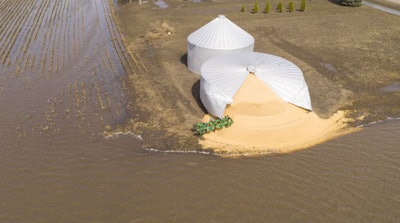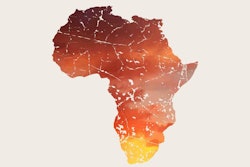
American Midwest likely to see another spring of widespread flooding, potential crop impacts
This spring is not likely to bring as much rain as 2019 did, but farmers in the Midwest can expect another spring of floods all the same, according to the National Weather Service.
Flooding is expected in 23 Midwestern states in the Mississippi and Missouri River basins, with the most severe flooding expected in North Dakota, South Dakota and Minnesota, according to the National Weather Service. Although the flood waters are not expected to reach historic heights like last year, the impact could be more widespread this spring and may persist through mid-summer, said Shawn Carter, a hydrologist with the National Weather Service at the National Water Center.
While above-normal rainfall is expected in the central and eastern U.S., that isn’t the primary reason the Midwest is expected to flood again this spring, Carter said. Rather, this spring’s flooding will be a sort of extension of last year’s events.
Flooding on the Mississippi persisted into the winter months of 2019, Carter said, and leftover moisture remains trapped in soils throughout the northern Plains and Corn Belt. On top of that, the region experienced a “healthy” snowfall over the winter. As it all thaws out, Carter said, “that’s got to melt and go somewhere.”
This year’s episode is unlikely to last as long as last year, Carter said, and floodwaters should subside by mid-summer. However, crop impacts could be widespread, even beyond areas that experience direct flooding.
Last year, Carter said, farmers who did get crops into the ground reported to the National Weather Service that “the plants that had got established had shallow root systems, and once we got into a two-week drought their leaves were curing.
“So even if a field isn’t flooded out, really wet soils will have a huge impact on agricultural production,” he said.
It’s not yet clear whether the floods will impact shipping and transportation, Carter said.
“What we can say is there are going to be impacts,” he said. “People are going to be affected. This forecast is a lot more benign than last year, but it still has some large areas that are going to see poor effects due to floods.”

















